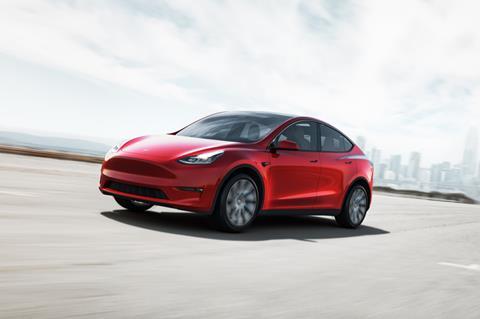
Plug-in cars have again shown strong growth as the overall new car market grew by 25.8% in June with 177,266 vehicles registered, achieving its 11th consecutive month of growth.
The latest figures from the Society of Motor Manufacturers and Traders (SMMT) showed that battery electric vehicle (BEV) registrations were 31,700, 39.4% up on the figures for the same month a year ago, giving them a market share of 17.9%.
Deliveries of petrol cars increased 22.7%, to 70,367, and they remain the most popular powertrain, with a 39.7% share of the market.
Hybrids (HEVs) and plug-in hybrids (PHEVs) also rose, by 40.1% and 65.5% respectively, but diesel registrations were down 13.5% to 6,221. This gave diesel a 3.5% market share, less than half the next smallest sector, PHEVs, with 7.2%.
Figures for the first half of 2023 show almost a million (949,720) new cars joined UK roads, with total registrations up 18.4% and BEV uptake at record levels with 152,968 deliveries so far this year – some 13 times greater than the same period in 2019.
BEV market share for 2023 is now 16.1% but, with a zero-emission vehicle mandate requiring 22% BEV registrations per manufacturer due to come into force in less than six months’ time, SMMT said more needs to be done to accelerate the transition.
It pointed out that drivers able to charge at home pay just 5% VAT to power up their EV, compared with 20% for those without access to a driveway or designated private parking space who are reliant on the public network.
It called for VAT equity to make switching to an electric vehicle feasible for more people regardless of home ownership or property status.
SMMT chief executive Mike Hawes said: “The new car market is growing back and growing green, as the attractions of electric cars become apparent to more drivers. But meeting our climate goals means we have to move even faster. Most electric vehicle owners enjoy the convenience and cost saving of charging at home but those that do not have a driveway or designated parking space must pay four times as much in tax for the same amount of energy. This is unfair and risks delaying greater uptake, so cutting VAT on public EV charging will help make owning an EV fairer and attractive to even more people.”
































